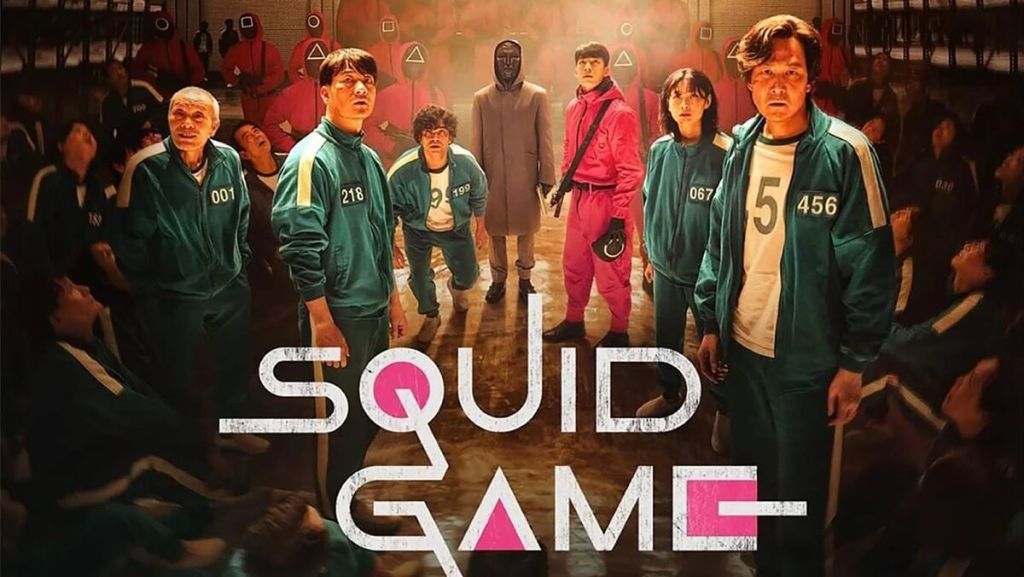Squid Game has become Netflix’s biggest launch ever, reaching 111 million viewers. It has toppled Netflix’s hugely popular American series Bridgerton.
Following the international success of their Spanish show Money Heist, Netflix has another winner from outside America in form of the South Korean survival drama series Squid Game just as Ted Sarandos, co-CEO of Netflix, had been hoping for. “The exciting thing for me would be if the next Stranger Things came from outside America. Right now, historically, nothing of that scale has ever come from anywhere but Hollywood,” Sarandos had said back in 2018. Squid Game has become Netflix’s biggest launch ever, reaching 111 million viewers. In doing so, it has toppled Netflix’s hugely popular American series Bridgerton, which had gained 82 million households in its first 28 days. While Netflix was always certain that Squid Game would do well in South Korea they had no idea that it will become such as huge success globally as well. To quote Sarandos: “We did not see that coming, in terms of its global popularity”. Almost all actors associated with the show have become huge stars including the Indian actor Anupam Tripathi who essays the part of Abdul Ali in the series.
But what is Squid Game? Well, let’s try and get the basic idea. The series revolves around 456 misfits of the society, each deeply in debt, who decide to take part in a contest which involves playing a series of children’s games with huge prize money but deadly penalties for losers. The South Korean filmmaker Hwang Dong-hyuk drew the idea for Squid Game from his personal experiences after he went broke while failing to get the investment for one of his movie scripts in the late 2000s. He started visiting cafes, often reading Japanese survival manga books such as Battle Royale, Liar Game and Gambling Apocalypse: Kaiji. Hwang even compared the characters’ situation in these works to his own situation at the time and toyed with the idea of joining such a survival game in order to win money to get him out of debt. The end result was a film script on that concept. However, when Hwang first circulated an early draft of Squid Game back in 2009, it got little traction from the producers as well as the actors who told him that it was “too grotesque and unrealistic.” With no takers, Hwang had no option but to put it aside and shift his focus to other projects.
He obviously had no idea that 10 years from then the OTT space would become so huge. Moreover, it was impossible to predict that the farfetched reality of Squid Game would be ideally suited to the pandemic times. In Hwang’s own words, “It’s a sad story. But the reason why I returned to the project is because the world 10 years from then has transformed to a place where these unbelievable survival stories are so fitting, and I found that this is the time when people will call these stories intriguing and realistic.” The economic disparity created by the COVID-19 pandemic over the last couple of years has made something like Squid Game very relatable, much like Galder Gaztelu-Urrutia’s Spanish language film The Platform (2019) which set in a uniquely designed prison with vertical levels where social distancing between prisoners and rationing of food are absolutely mandatory. Interestingly, South Korean Internet service provider SK Broadband has sued Netflix to pay for costs from increased network traffic and maintenance work because of a surge in viewers owing to Squid Game.
Also, the vendors of dalgona, the honeycomb candy featured in the second game, both within Korea and internationally have been witnessing a significant increase in sales ever since the show’s release. Even the clothing items matching those worn in the show have seen large growths in sales in the weeks following Squid Game’s release, such as the slip-on shoes manufactured by the American apparel brand Vans.
While the unprecedented success of Squid Game marks a major triumph for an OTT platform like Netflix and for content creators like Hwang Dong-hyuk, who are not scared to push the boundaries, it also is a reflection of the growing bleakness that the world finds itself in with the entire human race collectively forced to deal with one of its biggest crises since the Second World War.
The growing economic disparity in an increasingly cutthroat world is certainly a sign of concern. Squid Game has greatly succeeded in capturing the insecurity, mistrust, betrayal, fatalism, selfishness and stratification of the human society. What the participants of Squid Game fail to appreciate is the combined power of faith, trust and cooperation. It’s something that we all tend to forget while dealing with any crisis owing to our growing anxieties leading to an abject state of desperation. Certainly, one wouldn’t find a more relevant show to watch than Squid Game in the present times.

